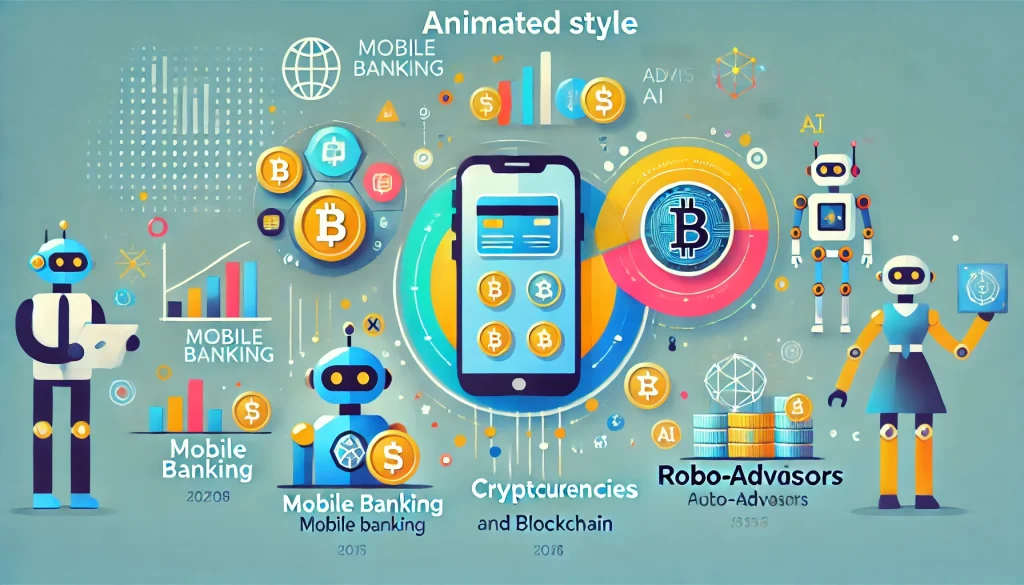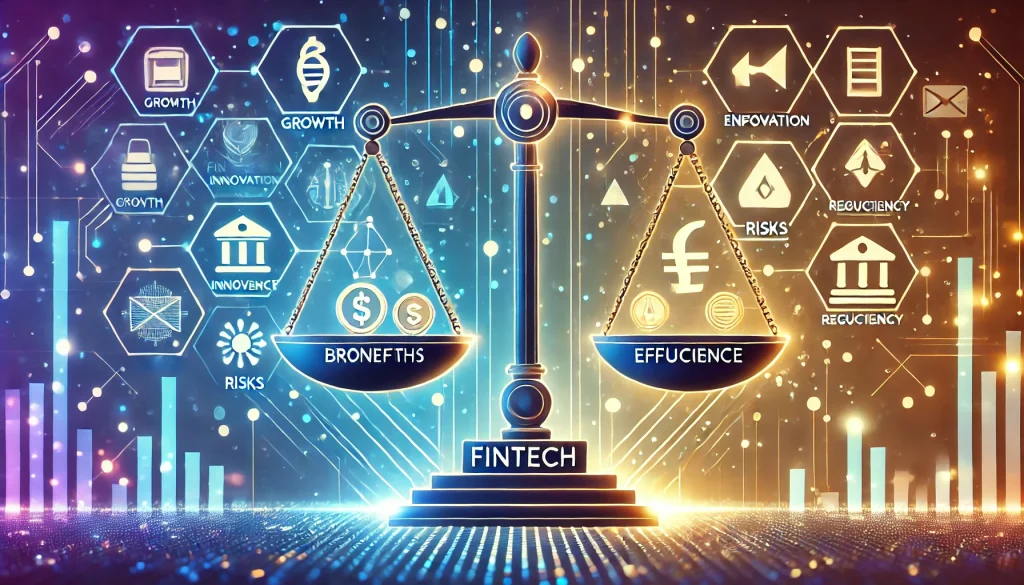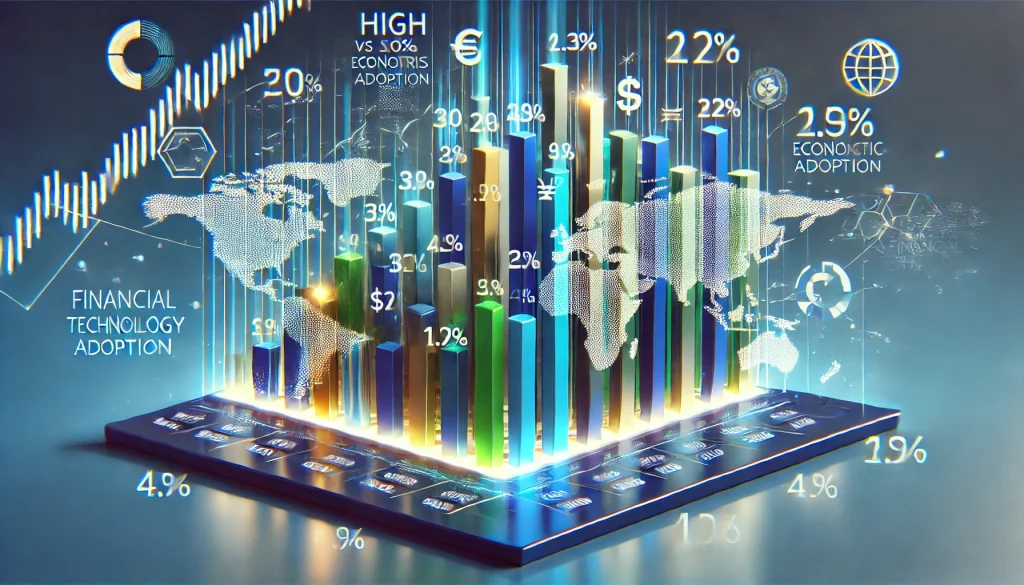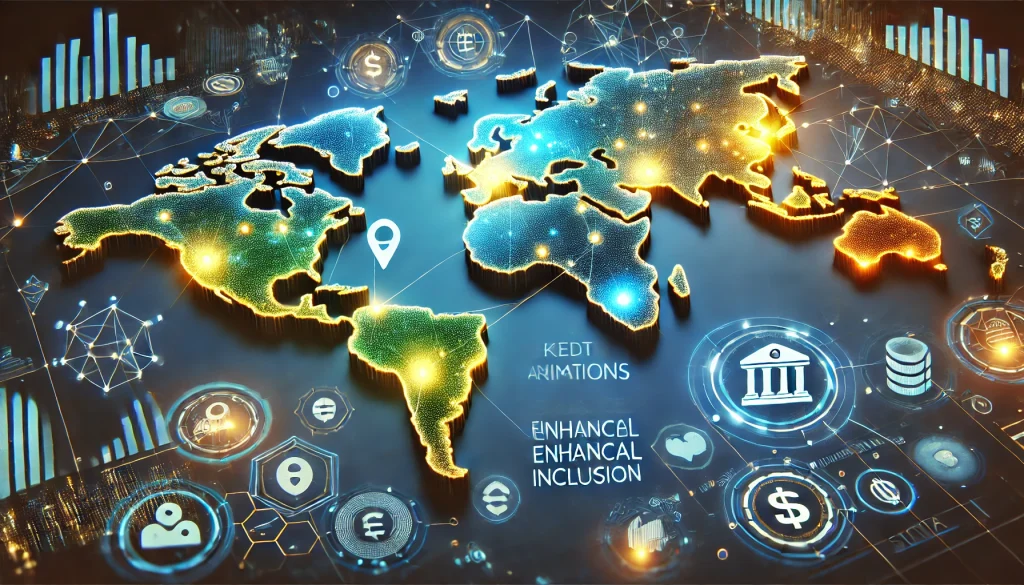
In recent years, the term “Fintech” has become a buzzword in the financial and economic sectors. Short for financial technology, Fintech integrates technology into financial services to enhance their delivery and use. It is redefining traditional systems, democratizing access, and driving innovation rapidly. Understanding Fintech is essential for stakeholders in economic planning and decision-making. This offers insights into future trends, disruptions, and opportunities in the financial sector.
Overview

The term Fintech encompasses a broad spectrum of technological innovations that aim to enhance the delivery and use of financial services. This includes everything from mobile banking and digital payments to blockchain, cryptocurrencies, robo-advisors, and peer-to-peer lending platforms. At its core, Fintech involves the systematic study of economic data, models, and trends to understand, interpret, and predict consumer behaviors, financial outcomes, and economic impacts. Key features of Fintech include automation, data analytics, secure and scalable digital platforms, and personalized customer experiences. It is reshaping the landscape by lowering costs, increasing efficiency, and expanding access to financial products, which were previously limited to specific regions or demographic groups.
Pros and Cons of Fintech
| Pros | Cons |
|---|---|
| Enhanced Accessibility: Fintech provides access to financial services to previously underserved populations, such as in remote or low-income areas. | Regulatory Challenges: The rapid growth of Fintech poses challenges to regulators, requiring new frameworks to ensure consumer protection and prevent financial crimes. |
| Cost Efficiency: Automation and digital platforms significantly reduce transaction costs and overhead for financial institutions. | Security Risks: Increased digital transactions raise concerns over cybersecurity threats, data breaches, and potential financial fraud. |
| Innovation and Personalization: Offers personalized financial products and services using AI and big data analytics, leading to better customer experiences. | Market Volatility: The integration of new technologies can lead to market instability, especially in sectors like cryptocurrencies that are highly speculative. |
| Speed and Convenience: Faster processing times for transactions, approvals, and investments compared to traditional banking methods. | Job Displacement: Automation and AI in Fintech can lead to significant job losses in traditional banking roles. |
| Global Reach: Breaks down geographical barriers, enabling cross-border transactions and investments. | Dependence on Technology: Over-reliance on technology can lead to vulnerabilities if systems fail or are compromised. |

In-Depth Analysis: The Economic Impact of Fintech

Impact on Economic Growth of Fintech
Fintech drives economic growth by fostering innovation, lowering transaction costs, and expanding access to financial services. Traditional financial systems often face high fees, slow processes, and geographic barriers. This uses technologies like blockchain, AI, and big data to streamline transactions and cut costs, boosting economic productivity. Digital payment platforms like PayPal and Stripe lower entry barriers for SMEs, allowing them to engage more in the global economy. These platforms enable smoother transactions, faster access to funds, and a wider customer base, increasing economic activity and contributing to GDP growth.
Market Efficiency and Competition in Fintech
It disrupts traditional financial markets by introducing new products and services that challenge banks and insurance companies. This disruption increases competition, lowers costs, and fosters innovation. Peer-to-peer lending platforms like LendingClub and Prosper offer direct lending, reducing costs for borrowers and increasing returns for lenders. This boosts market efficiency. Fintech’s entry has also pushed traditional institutions to innovate, adopt new technologies, and enhance customer service. This competition benefits consumers with better pricing and services and creates a more dynamic and resilient financial sector.
Financial Inclusion and Economic Participation of Fintech

It significantly enhances financial inclusion, especially in developing countries where many remain unbanked. Innovations like mobile banking and digital wallets, such as M-Pesa in Kenya, provide millions with access to savings, credit, and insurance. This inclusion expands economic participation, boosts savings and investment, and promotes local development. Access to financial services also reduces poverty by enabling people to start businesses, invest in education, and improve their living standards, driving broader economic growth.
Risk Management and Financial Stability
While Fintech brings many benefits, it also poses risks to financial stability. The rapid growth of cryptocurrencies, decentralized finance (DeFi), and algorithmic trading can increase market volatility and systemic risks. Many firms operate outside traditional regulatory frameworks, creating challenges for regulators to ensure stability and consumer protection. Advanced technologies like AI and machine learning can lead to issues in algorithmic decision-making and data privacy. However, Fintech firms are also developing risk management tools using big data and predictive analytics to detect fraud, assess credit risk, and monitor markets. For example, Zest AI uses machine learning to improve credit scoring, helping reduce defaults and strengthen financial stability.
Regulatory Challenges and Economic Policy
The rapid growth of Fintech creates regulatory challenges that affect economic policy. Traditional regulations often cannot keep up with fast-paced innovation in this sector. Policymakers must balance fostering innovation with ensuring financial stability. Effective regulation is key to preventing systemic risks and protecting consumers from fraud. Some countries use regulatory sandboxes that let firms test new products under oversight. This encourages innovation while managing risks. For example, the UK’s FCA and Singapore’s MAS have been leaders in implementing regulatory sandboxes. Proper regulatory frameworks help integrate Fintech into the financial system, supporting growth while maintaining stability.
Investment and Capital Formation
Fintech is transforming investment and capital formation. Crowdfunding platforms like Kickstarter and Indiegogo have changed how startups and SMEs raise funds, while equity platforms like Seedrs allow access to a broader investor base, bypassing traditional venture capital. This democratizes capital access, encouraging more entrepreneurs and innovation. Robo-advisors like Betterment and Wealthfront make investing more accessible for retail investors, allowing small investments and portfolio diversification at lower costs. By reducing barriers, Fintech fosters a more inclusive investment culture, boosting capital formation and supporting long-term economic growth.
Consumer Behavior and Economic Dynamics
Fintech is changing consumer behavior, which affects economic dynamics. Digital banking, contactless payments, and mobile wallets have made transactions faster, safer, and more convenient. This shift has increased consumer spending, particularly on digital goods and services, fueling the digital economy. Fintech firms use big data for targeted marketing and personalized financial products, influencing spending habits. AI-driven investment platforms, for example, offer customized portfolio management based on individual risk profiles and goals, promoting more informed financial decisions.
Conclusion
Fintech’s rise marks a significant shift in the economic landscape. It drives innovation, improves market efficiency, enhances financial inclusion, and changes consumer behavior. Fintech offers economic benefits by boosting growth and financial participation but also introduces challenges in stability, regulation, and systemic risk. Policymakers must carefully manage these complexities to leverage Fintech’s potential while ensuring stability. As it evolves, its impact on global economies will expand, creating new opportunities for growth and development in both developed and emerging markets.
FAQ
What is Fintech, and why is it important?
Fintech, short for financial technology, involves integrating technology into financial services to improve their delivery and accessibility. It is important because it is transforming traditional financial systems, making services more accessible, efficient, and cost-effective. Fintech drives innovation, democratizes financial services, and opens up new opportunities for growth in the financial sector.
How does Fintech impact economic growth?
Fintech boosts economic growth by enhancing market efficiency, lowering transaction costs, and improving access to financial services for individuals and businesses. It supports financial inclusion, allows more people to participate in the formal economy, and fosters innovation through new financial products and services. These factors contribute to higher productivity and overall economic development.
What are the challenges associated with Fintech?
While Fintech offers many benefits, it also presents challenges such as regulatory concerns, financial stability risks, and cybersecurity threats. Rapid innovation in areas like cryptocurrencies, decentralized finance (DeFi), and algorithmic trading can lead to market volatility. Regulators must balance fostering innovation with ensuring consumer protection and financial stability.
Resources
- Builtin.com. What is Fintech? A Beginner’s Guide to Financial Technology
- ResearchGate.net. Is Schumpeter Right? Fintech and Economic Growth
- Boston Consulting Group (BCG). The Future of Fintech and Banking
- Investopedia. Fintech Definition
- Boston Consulting Group (BCG). Global Fintech Prudence, Profits, and Growth
